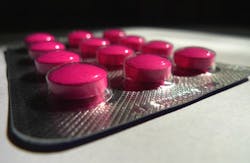US, European watchdogs join forces to regulate generic drugs
The European Medicines Agency (EMA) and the U.S. Food and Drug Administration (FDA) have started a joint program for sharing information on bioequivalence studies required during the process of approval for generic drugs. The initiative will facilitate joint inspections of facilities applying for generic drug approval on both sides of the Atlantic, the agencies announced last week.
When applying for generic drug approval, pharmaceutical companies have to prove that the drug is bioequivalent to the respective brand drug. This means that generics have to serve the same purpose as the brand name product and must perform in the same way. Thanks to the newly launched joint program, approving generic drugs will be facilitated as the EMA and the FDA will exchange information on facility inspections and bioequivalent studies.
RELATED: FDA imposes new ban on Wockhardt drugs
The two agencies will also use the collaboration to share information about negative outcomes from facility inspections and problem areas in the sector, as well as to provide joint training for FDA and EMA inspectors in a bid to improve the efficiency of bioequivalence inspections.
According to Janet Woodcock, director of the FDA's Center for Drug Evaluation and Research, the initiative will ensure that consumers have access to generic drugs that are both safe and effective.
Apart from the EMA, European Union member states France, Germany, Italy, the Netherlands and the United Kingdom are also taking part in the initiative.
